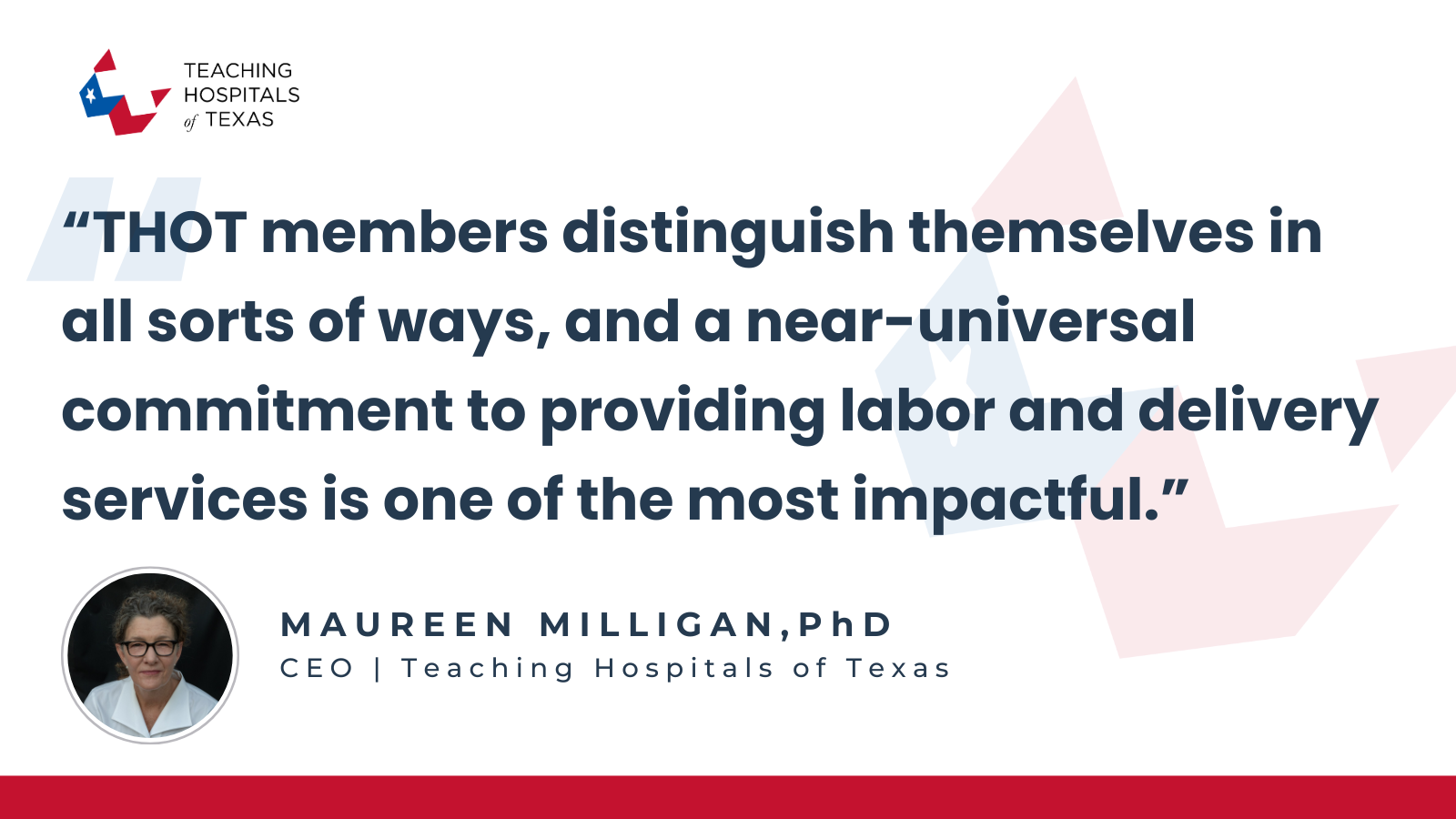Last week, the Centers for Medicare & Medicaid Services awarded 200 additional Medicare-funded graduate medical education slots to 109 teaching hospitals across the country.
Three of the 109 institutions are in Texas, and two of those three are THOT members – Dallas-based Parkland Health and UT Southwestern Medical Center. The new funding supports just under 1 GME slot for forensic psychiatry at Parkland and for psychiatry at UTSW.
“THOT’s members are on the frontlines of physician education and training and are self-funding many residency and fellowship positions because of their commitment to Texas’ physician workforce,” said Maureen Milligan, PhD, CEO, Teaching Hospitals of Texas. “Additional Medicare-funded GME slots are a welcome development, and we will continue to advocate in Austin and educate in D.C. for greater public investment in a strong medical education and training system.”
The new Medicare-funded slots are part of Congress’ first increases to GME funding since 1997. Lawmakers allocated funding for a total of 1,200 new slots in two recent end-of-year spending packages, the Consolidated Appropriations Act of 2021 and the CAA of 2023. To qualify for a slot, hospitals must meet at least one of four criteria: be in a rural area, be training a number of residents that exceeds their current GME slots, be in a state with new medical schools or branch campuses or be in a Health Professional Shortage Area.
While Medicare funds some of the costs of GME, it uses an outdated formula that funds only a share of costs for residencies that existed over 25 years ago (1996), leaving a significant share of THOT member hospitals’ historic GME positions unfunded.
Hospitals provide the primary site for GME clinical training – but receive limited funding through a variety of different programs. The 88th Texas Legislature created a series of grant programs to support new GME positions in forensic psychiatry and rural residency programs.




